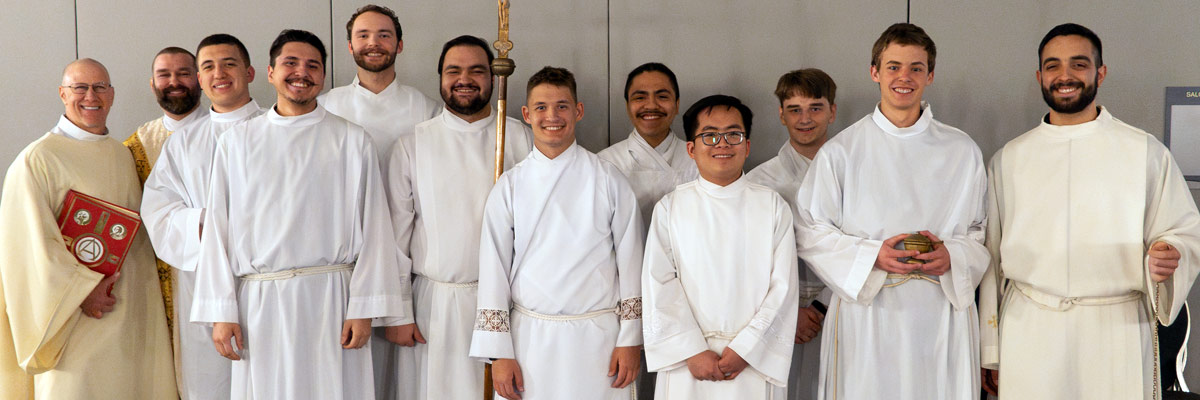Official Website of the
Catholic Diocese of Little Rock
28th Sunday in Ordinary Time, Year C
Published: October 1, 2016
Bishop Anthony B. Taylor preached the following homily at Little Portion Hermitage in Berryville on Saturday, Oct. 1, 2016.

Bishop Taylor
A couple of years ago I gave a retreat here at Little Portion for the monastic members of the Brothers and Sisters of Charity based on the Servant Parables of Jesus. Servant stories were a type of story told in Jesus' time, much like Cowboy stories are in ours, and like us, people in those days had expectations about how such stories should go.
They expected the master to give the servant a task and then they would be separated and the servant tested regarding the accomplishment of that task. The servant decides what he will do, and then he would be reunited with the master, who evaluates what he has done and rewards or punishes him accordingly.
We see this, for instance, in the parable of the talents: He gives three servants money, two risk investing it and make more, but the other servant fears his master and hides it. The first two are rewarded but the servant who is unwilling to take a risk is punished.
God loves us not because we deserve his love, but rather because love is his very nature, so he loves everything he has created without distinction.
Task, separation, trial, decision, reunion, evaluation and reward or punishment. Likewise in the parables of the wicked tenants, the faithful/unfaithful servant, and the unmerciful servant. In these parables the servants get what they deserve. Consequences flow from doing the Master's will — or not.
But then Jesus does something unexpected, which we see in Jesus' other four servant stories, including the parable of the dutiful servant in today's Gospel. In these parables, what the servants get or don't get has nothing to do with whether they deserve it or not, and in this way Jesus introduces the new covenant of grace.
So the vineyard workers all get the same pay for unequal work and we are scandalized, the unjust steward is praised for at least being resourceful, all the waiting servants are rewarded extravagantly for just staying awake when only one would have been enough to open the door.
And, most troubling is the parable in today's Gospel where Jesus dismisses as ridiculous the thought that dutiful servants should expect gratitude for just doing what they were supposed to do. "Is the master grateful to that servant because he did what was commanded? ... When you have done all you have been commanded, say, 'We are unprofitable servants; we have done what we were obliged to do.'" So what does that mean for us?
Well what Jesus is doing here is overthrowing the entire theology of merit — the idea that we can earn heaven by our good deeds, put God in our debt. God doesn't owe us anything, he's the master and we're his servants. He doesn't need anything from us so why should we expect him to be grateful to us?
We're the ones who have every reason to be grateful to him, because without him we'd be nothing, we wouldn't even exist. God loves us not because we deserve his love, but rather because love is his very nature, so he loves everything he has created without distinction.
We are his dutiful servants as per this parable not because we think that by our service we will win God's favor. We already have his favor, as does everyone. He is good to us because HE is good, not because we are good.
We are his dutiful servants because his love has touched our hearts and we want to reciprocate that love. And isn't it true that love is its own reward? It's a sharing in the very life of God.
Your community is now going through a transition with John and Viola preparing to spend more time here at Little Portion and less time in itinerant ministry. In the words of today's Gospel, they are coming in "from plowing or tending sheep in the field".
Their dutiful service will continue here in the monastery, putting on their apron figuratively and waiting on the Lord while he eats and drinks here — serving him here, including in the person of your new celibate monastic candidates who will require their personal attention.
And so for them, as for all of us, the Lord continues to give us tasks and we continue to decide whether we will do faithfully what he asks of us, not merely because we hope thereby to win God's favor, but simply because we know that he loves us and we love him, and we want to reciprocate that love.









